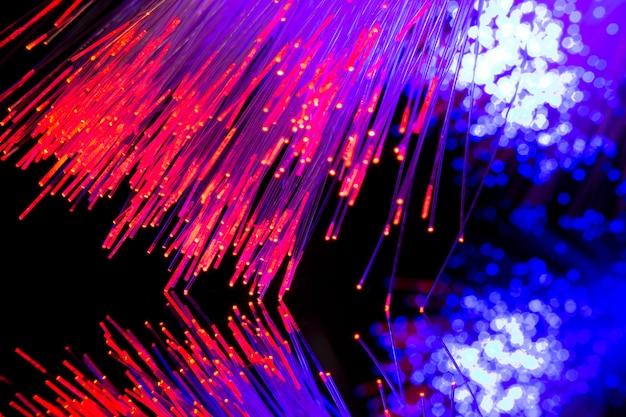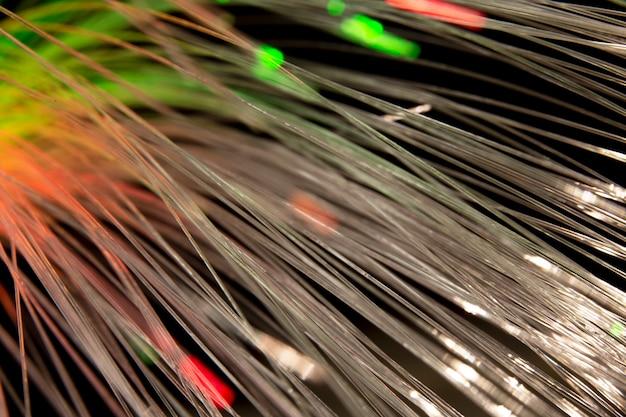Dielectric materials are an essential part of various electronic devices and systems, playing a critical role in their functionality. They are used in capacitors, insulators, and other applications that require electrical energy storage or isolation. But what exactly is a dielectric material, and which one is considered the best?
In this blog post, we will delve into the world of dielectric materials, answering common questions and shedding light on their properties and applications. We will explore the differences between dielectrics and insulators, discuss the concept of dielectric constant (K), and discover the materials with the highest dielectric strength. Additionally, we will explore whether popular substances like rubber, paper, wood, copper, and water can be classified as dielectric materials.
So, if you are curious to learn more about dielectrics and want to understand which material reigns supreme in this realm, read on. Whether you are an electronics enthusiast, a student, or simply interested in expanding your knowledge, this comprehensive exploration will give you the insights you seek.
What Is the Best Dielectric Material
When it comes to dielectric materials, choosing the best one is crucial. After all, they play a significant role in various fields such as capacitors, insulators, and even electric vehicles. So, what is the best dielectric material for these applications? Let’s dive in and explore the options, shall we?
Super Capacitors Are the Stars
If we were to crown a superhero among dielectric materials, it would undoubtedly be the Polyvinylidene Fluoride (PVDF). This flexible plastic has been making waves, thanks to its remarkable characteristics. PVDF not only offers high thermal stability but also boasts excellent mechanical strength. Talk about a dielectric powerhouse!
Let’s Get Ceramic
Ceramic materials, you say? Absolutely! Dielectric ceramics are renowned for their versatility and remarkable electrical properties. One notable contender in this category is Barium Titanate (BaTiO3). Its unique ferroelectric properties make it an excellent candidate for various applications, including piezoelectric devices and data storage. It’s like the Beyoncé of the dielectric world, always stealing the spotlight.
Breakthrough with Breakdown Strength
If strength is what you seek, look no further than Polypropylene (PP). This dielectric material offers exceptional breakdown strength, making it perfect for high-voltage applications. It’s as sturdy as an oak tree in a hurricane, ensuring your devices stay safe even when electricity gets rowdy.
Polymer Pioneers
Polymer dielectric materials deserve a special mention too, and among them, Polyethylene Terephthalate (PET) is a true champion. PET brings the party with its outstanding dielectric properties, making it a top choice for applications like electrical insulation and packaging. Just like a good friend, PET is reliable, versatile, and always ready to lend a helping hand.
Wrapping Up
While it’s tough to pick a single dielectric material as the absolute best, these contenders certainly make the cut. Whether it’s the superhero powers of PVDF, the versatility of ceramics, the strength of PP, or the reliability of polymers like PET, each material shines in its own right. So, the next time you’re in need of a dielectric material, consider these exceptional options. Your devices will thank you for it!
FAQ: What Is the Best Dielectric Material
Dielectric materials play a crucial role in various electrical applications, from capacitors to insulators. In this FAQ-style subsection, we address some common questions to help you understand these materials better.
Is Rubber a Dielectric Material
Yes, rubber can be considered a dielectric material. Dielectric materials are substances that do not conduct electricity easily. Rubber has low electrical conductivity, making it an excellent choice for insulating purposes.
What Is the Difference Between Dielectric and Insulator
Although these terms are often used interchangeably, there is a subtle difference. Insulators are materials that do not conduct electricity at all, such as rubber or wood. On the other hand, dielectric materials are insulating but can store and release electrical energy when subjected to an electric field, like in capacitors.
What Is the Strongest Dielectric
The strength of a dielectric material is determined by its dielectric constant, also known as K-value. While many materials can be strong dielectrics, some ceramics, like barium titanate (BaTiO3), exhibit particularly high levels of dielectric constants.
Are Clouds Capacitors
Well, in a way, clouds can be thought of as natural capacitors. When a thundercloud forms, it creates an electric field between the ground and itself. Just like a capacitor stores electrical energy, the electric charge builds up in the cloud until it is discharged as lightning.
Is Paper a Dielectric
Yes, paper can act as a dielectric material. While it may not possess a high dielectric constant like certain ceramics, paper can still function as an insulator and be used as a dielectric in certain applications.
Why Is K (Dielectric) High
The dielectric constant, or K-value, of a material represents its ability to store electrical energy compared to a vacuum. Materials with high K-values have a greater capacity to store charge, making them efficient in capacitors and related devices.
What Does Dielectric Mean
The term “dielectric” refers to an insulating material that can store electrical energy within an electric field. In simple terms, it refers to materials that do not readily conduct electricity but can be polarized under the influence of an electric field.
Why Is Dielectric Used in Capacitors
Dielectric materials are used in capacitors to separate the electrically conductive plates. When a voltage is applied, the dielectric increases the capacitance by allowing more electrical charge to be stored in the same physical space, resulting in an increase in the capacity to store energy.
What Is Meant by Dielectric Loss
Dielectric loss is the energy dissipation in a dielectric material due to the alternating electric field applied to it. This phenomenon occurs when the dielectric material absorbs electrical energy and converts it into heat, resulting in energy loss.
What Material Has the Highest Dielectric Constant
Some materials, such as barium titanate, have exceptionally high dielectric constants. However, it’s important to note that the best dielectric material depends on the specific application and the desired dielectric properties.
Is Copper a Dielectric Material
No, copper is not a dielectric material. Copper is an excellent electrical conductor and is widely used in wiring and other conducting applications.
What Happens When Wood Is Replaced by Air as a Dielectric
When wood, which is an insulator, is replaced by air as a dielectric, the capacitance of the system decreases. This is because air has a lower dielectric constant than wood, meaning it can store less electrical charge.
Which Material Has Lower Dielectric Strength
Materials with lower dielectric strength are more prone to electrical breakdown. While various factors influence dielectric strength, generally, gases such as air have lower dielectric strength compared to solid materials.
Is Wood a Dielectric Material
Yes, wood can indeed be considered a dielectric material. Due to its low electrical conductivity, wood can act as an insulating material and find applications as a dielectric in certain industries.
Why Is K High
A high dielectric constant (K-value) indicates that a material has a greater ability to store electrical energy compared to a vacuum. This increased capacity for storing charge makes high K dielectric materials valuable in various applications involving capacitors and energy storage.
Does Water Have a High Dielectric Constant
Yes, water has a relatively high dielectric constant compared to many other substances. Its dielectric constant at room temperature is approximately 80. This property of water makes it useful in applications such as capacitors and microwave heating.
Why Do We Need High K
High K dielectric materials offer increased capacitance, allowing for the storage of more electrical charge in a given physical space. This property makes them valuable in miniaturization efforts, as well as in devices where high energy storage or efficiency is desired.
What Is a Dielectric Used For
Dielectric materials serve various purposes in electrical applications. They are commonly used as insulators, capacitors, energy storage mediums, and in various devices that require the manipulation of electric fields.
Why Is It Called Dielectric
The term “dielectric” originates from the Greek words “dia” meaning between or through, and “electric.” It refers to materials that can transmit or store electric energy through polarization without conducting electricity themselves.
What Is a Perfect Dielectric
A perfect dielectric is a hypothetical material that exhibits zero electrical conductivity while having an infinite dielectric constant. In practice, no material can fully meet these criteria, but some substances, like certain ceramics, approach the ideal behavior.
Which Dielectric Material Is Best
The best dielectric material depends on the specific requirements and intended application. Ceramics like barium titanate and certain polymers are often favored for their high dielectric constants, while other factors like mechanical properties and cost also influence material selection.
Is Water a Good Dielectric Material
Yes, water is widely used as a dielectric material due to its relatively high dielectric constant and availability. Its properties make it suitable for use in various electrical applications, including capacitors and transformers.
What Are the Properties of Dielectric Materials
Dielectric materials possess several important properties, including electrical insulation, polarization under an electric field, high resistivity, specific heat capacity, breakdown voltage, and dielectric strength. These properties enable their diverse applications in electrical engineering and many other fields.
Is Ceramic a Dielectric Material
Yes, ceramics can be excellent dielectric materials. Some ceramics display high dielectric constants and low dielectric losses, making them suitable for use in capacitors and other electrical components.
In this FAQ-style subsection, we’ve answered common questions about dielectric materials. Understanding these key concepts will help you appreciate their significance in various electrical applications.

